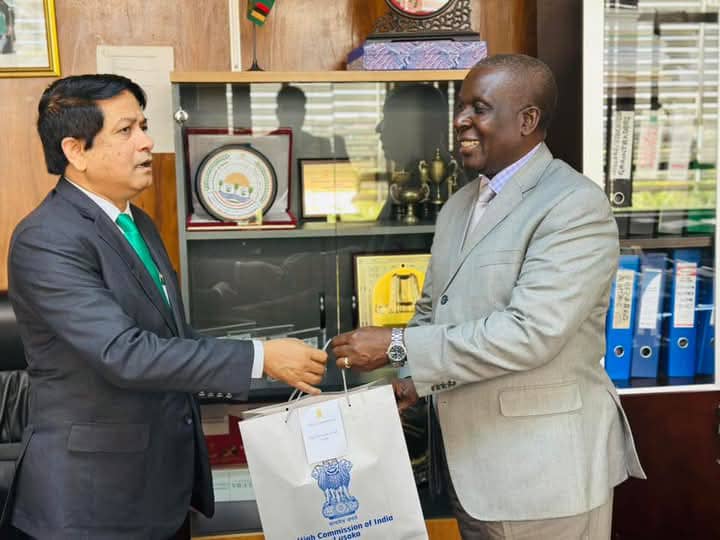Zambia Invited to Showcase Agricultural Potential at World Food India 2025
Zambia has received an official invitation to participate in the prestigious World Food India 2025, an international platform set to take place in September 2025, aimed at promoting global partnerships, investment, and food security.
The invitation was extended by the Indian High Commissioner to Zambia, His Excellency Mr. Alok Ranjan Jha, during a courtesy visit to Minister of Agriculture, Honourable Reuben Mtolo Phiri, MP. The High Commissioner reaffirmed India’s strong development partnership with Zambia, particularly in the agricultural and agro-processing sectors.
During their high-level engagement, both parties discussed enhanced collaboration in areas such as rice production, cashew nut development, and the cultivation of pigeon peas—a commodity in growing demand in India.
Mr. Jha expressed India’s interest in investing in Zambia’s farm blocks across all ten provinces, emphasizing their potential to boost national food production and support economic growth.
Mr. Jha further stressed the need to expedite the implementation of existing bilateral agreements, which could open new avenues for trade and investment between the two countries.
Describing World Food India 2025 as a major international platform, Mr. Jha said the event brings together food producers, investors, manufacturers, and policymakers.
He highlighted the opportunity for Zambia to present its agricultural products, foster practical partnerships, and attract investment focused on value addition, food security, and technology transfer.
Welcoming the invitation, Minister Mtolo expressed Zambia’s eagerness to leverage India’s expertise and innovation to transform the country’s agricultural sector.
He emphasized that Zambia’s participation in World Food India would promote trade, deepen bilateral ties, and provide exposure for local agribusinesses to international markets.
Mr. Mtolo reaffirmed Zambia’s ambitious production targets—10 million metric tonnes of maize, 1 million metric tonnes of wheat, and 1 million metric tonnes of soya beans annually by 2027—and noted that partnerships like this are key to unlocking the country’s full agricultural potential.



